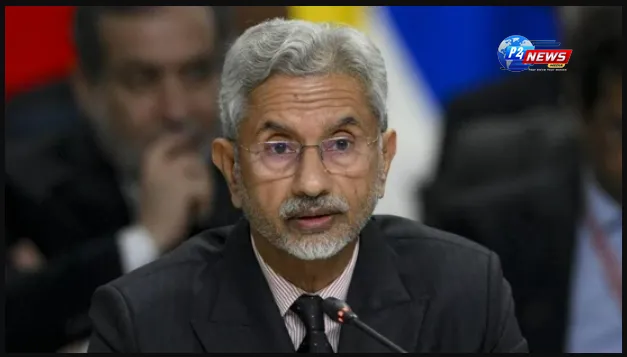Jaishankar highlighted serious security issues in the region, emphasizing their profound negative effects on trade within Asia, which could hinder economic growth and stability across the continent.
Jaishankar highlighted serious security issues in the region, emphasizing their profound negative effects on trade within Asia, which could hinder economic growth and stability across the continent.
New Delhi: The growing tensions between Israel and Iran have emerged as a significant concern, prompting India's diplomatic initiatives aimed at alleviating this situation, as stated by External Affairs Minister S. Jaishankar during a recent address. His remarks were made at the Manama Dialogue in Bahrain, where he highlighted the importance of addressing the security concerns stemming from the ongoing conflict in West Asia. Jaishankar emphasized that these tensions have direct implications for trade, particularly due to the potential rerouting of maritime pathways and rising trade costs.
During his two-day visit to Bahrain, which commenced on Saturday, Jaishankar discussed a myriad of economic and strategic matters. These included efforts to prevent the escalation of conflicts and initiatives like the India-Middle East-Europe Economic Corridor (IMEC) and the International North-South Trade Corridor (INSTC). He acknowledged the recent unsettling dynamics in the relationship between Israel and Iran and indicated that India's diplomatic engagements have been oriented toward addressing this critical aspect.
Jaishankar noted the broader context in which India operates, considering its dependence on West Asia for energy resources and the presence of approximately nine million Indian expatriates in the region. He remarked on India's keen observance of the conflict between Israel and Hamas, alongside the increasing tensions between Iran and Israel, all of which contribute to a heightened sense of concern for India.
In his address, Jaishankar condemned the terrorist actions perpetrated by Hamas, including the taking of hostages. However, he underscored that any military response from Israel should factor in humanitarian considerations. He advocated for an end to hostilities and a revival of dialogue aimed at achieving a sustainable two-state solution, which addresses the core issues in the conflict.
Emphasizing the significance of West Asian nations as key partners in security matters for India, Jaishankar pointed out the substantial security challenges facing the region, which pose profound economic repercussions. He elaborated on how these challenges have led to disruptions in maritime routes and resulted in heightened costs related to insurance, shipping, and container delays. The minister expressed India's vested interest in mitigating these challenges and restoring stability.
India has maintained a considerable naval presence in critical maritime corridors, including the Gulf of Aden, North Arabian Sea, and off the coast of Somalia. With a fleet that has included around thirty warships, India demonstrated its commitment by responding to incidents and providing assistance to vessels in distress over the past year. Jaishankar emphasized India's collaboration with Operation Prosperity Guardian, a U.S.-led initiative aimed at addressing regional security challenges, as well as its role in the combined maritime force headquartered in Bahrain, which works closely with CTF150 and EUNAVFOR.
Furthermore, Jaishankar discussed the various connectivity projects integral to India’s strategic vision, including the India-Myanmar-Thailand Trilateral (IMTT) highway and the aforementioned IMEC and INSTC. He highlighted the potential these corridors hold for enhancing connectivity, stating that the completion of the IMEC could essentially link the Atlantic to India, while the IMTT would extend India's connectivity to the Pacific. This would result in a seamless transportation network traversing southern Europe, the Arabian Peninsula, and parts of the Asian continent, fostering greater regional integration.
Through these initiatives, India aims to fortify its ties with West Asian nations while addressing the underlying security concerns that threaten trade and stability in the region. Jaishankar's insights reflect a commitment to collaborative efforts that prioritize diplomatic engagement and the promotion of peace amidst a backdrop of ongoing volatility.
Like
Dislike
Love
Angry
Sad
Funny
Pray
'Trump Tracker: Tulsi Gabbard's Surprising Appointment as US Intelligence Chief
November 14, 20249th Ayurveda Day in Melbourne: A Celebration of Ayurvedic Innovations and Global Health Impact
November 10, 2024🍪 We Value Your Privacy and Experience Hi there! We use cookies to enhance your browsing experience, provide personalized content, and analyze site traffic. By continuing to use our site, you consent to our use of cookies.







Comments 0